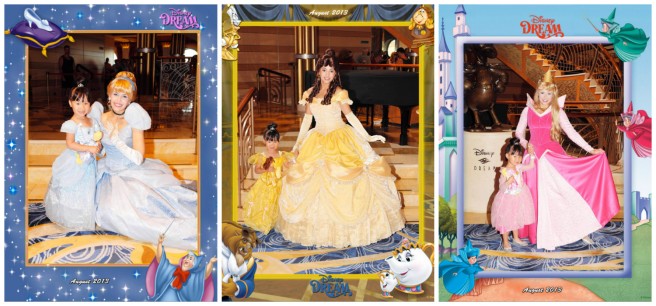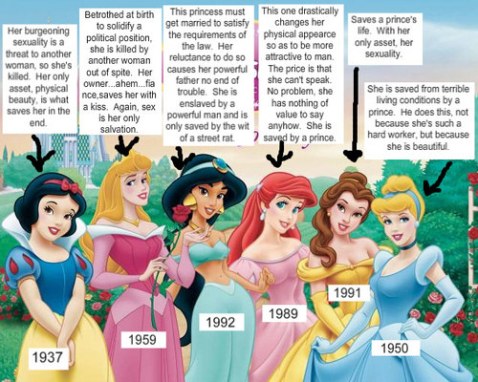April 5, 2017

Last week I took a Spring Break from this blog. My father was visiting us in Portland. He had just celebrated his 75th birthday in Hawaii and (for some reason) chose to leave a sunny beach for cold and rainy Oregon. I was happy because it had been over a year since we had seen him and Cozy really wanted to see her Grandpa. He took Cozy and I to see Moana (Cozy loved it, powering through the scary part, and I appreciated Disney utilizing a Goddess tale) and we had a belated birthday dinner at Portland City Grill. It was nice to catch up.
It’s an odd thing being around your parents when you’re a parent. You realize how like them you are, whether you want to be or not. I see so much of my dad in me. We even have similar mannerisms. It kinda freaks me out a bit. There are certainly qualities in this man I greatly admire, and a few I’ve worked to limit. How much like this person am I? I tend to think I turned out pretty good. I didn’t become a serial killer or a military contractor or a wife-beater or a guy who spends all his time playing fantasy football. I went to graduate school instead of Wall Street. Also, I like quiche. (There are a few kinks still to be worked out.) He did a pretty good job on the parenting front it seems.

So I thought, while he was here, we’d sit down and I’d ask him what it was like to be a new father of a boy in the mid-1960s, when the world and gender roles were changing. What I got was a very honest conversation about his struggle to find balance between his home life and his work in sales that often took him away from home, a flash of insight into issues that led to my parents divorce when I was 17, and some useful wisdom about how to be a great parent to my daughter. We sat on the couch in my living room talking and I just wanted to ask good questions but as I transcribed our talk I got a greater appreciation for his own journey as a parent.
Randy: So I was born in February 1964. The world was a little different then. Did you know I was going to be a boy?
Dad: No. We talked about it before you were born, about whether we wanted a boy or a girl and we agreed it doesn’t matter the first time, especially the first child, as long as they’re healthy and have all the fingers and toes. It didn’t really matter to us. In fact, we decorated the nursery in yellow so that it didn’t matter whether it was a boy or girl. We changed the decor after it was born, but we were just happy to have a healthy child.
R: Would you have thought differently if I had been born a girl, knowing girls had fewer opportunities?
D: If it was a boy we would have raised it one way, and if it was a girl, we pretty much would have raised it the same way.
R: Did it help that mom had a job before she got pregnant? She didn’t really work after I was born.
D: She was woking in a business office and we agreed that when she was 6 months pregnant that she would stop working and stay home and make sure that she was healthy. We could live on one income and that’s what we did. The second income was nice but it wasn’t necessary. I was making enough money to take care of the family and I really didn’t want her to work. I wanted her to stay home with the baby. And she did.
R: Did she want to work?
D: Yeah, oh yeah. She was always wanting to help out and work and stay active but she found things to do at home and concentrating to getting to that baby to one year, at least.
R: The mid-60s was really the rise of the feminist movement and women discovering their life outside of the home. What did you think about “women’s lib”? Mom has said she was aware of it, but were you thinking it was a big change?

D: I was open minded about it. If she wanted to work she could work. But we had to consider the babysitter situation. We had an elderly lady upstairs that was a good babysitter and she had some girlfriends that would come over and babysit after that year. But she stayed home for about a year before she went back to work. And she was really bored and anxious to get back to work. She wanted to do more than be just a mother.
R: What did you think about her going back to work then?
D: Back then I wanted her to stay at home and take care of the baby and make dinner and do the laundry and all the stuff that women did then. And I was happy just working and having her be the housewife. Now I think the mother should do whatever they feel comfortable doing. If they wanna work, they should work.
R: OK, lets talk about me. Or just raising a boy. I didn’t really turn out like a typical boy. I wasn’t too obsessed with violence or sports. I’d rather just read. When I was little, did you have a philosophy about how to raise a boy?
D: Like all couples with their first child we didn’t have a clue. We were flying by the seat of our pants. From a philosophy standpoint, we didn’t want you to be a soldier. We wanted you to have a happy childhood. That was really important to us. We tried to do things with you that you’d enjoy. We bought that canoe and we used to take you canoeing when you were little. We went on some camping trips and things like that. We involved you and let you see what the world was like but we didn’t have any ideas of the future of what you were going to be or were going to do. You were always such a good kid we didn’t have to go through the challenge of trying to raise you. You kind of took care of yourself.
R: Did you think boys should be raised differently that girls?
D: We just let you do your own thing. We would keep an eye on you and make sure you didn’t get into anything too violent. We moved from the rental home to a house in Parma Heights, a three bedroom ranch house and I can remember you had your own room. It was a fun place. The backyard was fenced in and it had a playground and swing and you used to go out there and have fun by yourself. We would kind of keep an eye from the house and make sure you were OK.
R: We like to think we’re not raising Cozy as a girl but as a person. She’s gonna have to know about the world and that there’s some inequality she’s going to have to wrestle with, but she’s a person first.
D: Even thought it was 50 years ago we did the same thing. We raised you the same way. We didn’t try to make you macho. You’re your own person. You have respect for both genders and that’s important and you still have that gentleness you had as a kid. You never lost that and that shows up in Cozy.
R: You traveled a lot when I was little. Do you think that impacted how I developed?

D: I think I would have been able to more things with you and teach you more things. I tried when I was home to concentrate on teaching you the basic fundamentals and to get you involved in things, in sports, in life, in outdoors, and swimming. That was a big part of me. Then swim team. I tried to keep you involved. We started out with Indian Guides. You were Little Crow and I was Big Crow. We had a lot of fun with that. I tried to get you and your brother involved with things, but I tried to be there, included and supporting you. I think that created a problem with the marriage, actually, because when I was home I was so involved with you guys, I probably didn’t pay enough attention to Sandy (my mom). I think it created a lot of boredom on her part because a lot of the time she wasn’t working. She was at home taking care of you guys. There has to be a balance there and I didn’t recognize that balance. I was too intent on making as much money as I could so you guys could have a good life. You were always in neighborhoods and homes that were, um, “upscale.” You always had friends, it was safe, you could walk to church. I always tried to have the family in a place that was safe and fun.
R: OK, last question. What’s your general advice to being a parent to someone Cozy’s age.
D: You’ve gotta give them room to grow. Encourage them to do the right thing, of course. And push them in a direction they don’t want to go but pay attention and see what they enjoy and like to do and just kind of guide them in the direction to their future. They’ll tell you. They’ll let you know what they like. Cozy’s got a great start because she’s got an artist mom and a well-educated dad. You guys are in that period where you’re in a transition now. And when you find out what you want to do next it’s going to be good for you and good for the family. When you’re happy the rest of the family is happy.

That’s certainly a good piece of truth. Talking to my dad reminded me of Betty Friedan’s book, The Feminine Mystique, and how my mom must have felt a bit stifled in that home in Parma Heights. Those were times when gender roles in middle class homes were really being re-examined. But it also made me think about how much free reign I had as a little boy, to explore the yard, the neighborhood streets, and the woods. That had to play a role in my sense of independence. And that’s what we’re doing with our daughter. So my father will be a part of her independent spirit.

Postscript: My mother just read this and thinks a lot of it is just wrong. She used words like “male chauvinist” and “doormat.” I’m gonna do a parallel interview with her about this period and get her side of the story. It’s funny how we (re) remember our own lives.































































